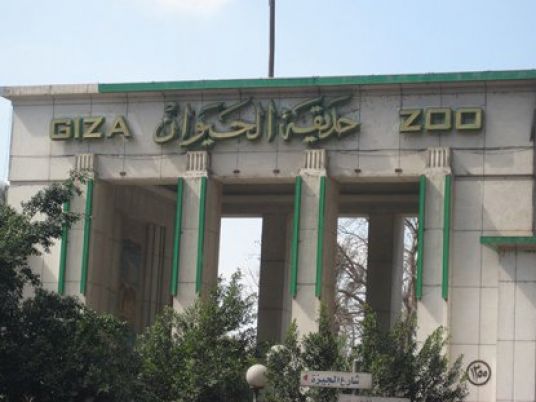On the occasion of World Health Day, the Giza Governorate held a festive event on Tuesday behind the famous Great Pyramids. This year’s global theme centered around urban health matters.
Between 7 and 11 April, events will be held around the world to mark the launch of the WHO’s “1000 Cities, 1000 Lives” campaign. The initiative aims to promote the opening of healthy public spaces in 1000 cities–by, for example, establishing parks and pedestrian streets–and to collect 1000 stories of "urban health champions" who have contributed to the improvement of their respective city’s overall healthiness.
For Egypt, however, the goal of yesterday’s event was arguably more ambiguous, with Giza taking center stage at the expense of World Health Day. “It’s almost as if the Giza Governorate itself is trying to run for president,” said one of the many attendees as he fished for an empty seat.
Speakers at the event proclaimed Giza to be the “country of civilization,” as poetry readings extolled the governorate’s glories.
Entering the tent, handicrafts and carpets were on sale to the right, with large environmental campaign posters displayed near the seating area. A large picture of a young President Hosni Mubarak was the most conspicuous among them, incorporating smaller images of schools, the metro, F16s and hospitals. Its title: "Accomplishments of Mubarak."
In the seating area, Pink Floyd played on repeat until the event finally began. After long introductions of attendant VIPs–including Social Solidarity Minister Aly el-Moselhi and Tarek Alaam–a brief summary of the governorate’s plans for the 1000 Cities campaign was presented on five 42-inch plasma television screens for the hundreds of attendees.
The plans are expected to involve over 20,000 young people and include 5000 newly-planted trees, five public gardens, a marathon, street clean-ups, workshops and various theatrical performances, among other things. The summary was followed by a long period devoted to honoring various state officials for their contributions.
When the celebrations finally began, kicked off by the Armed Forces Symphony dressed in Pharaonic attire, the first wave of attendees began to leave. This was followed by a folkloric dance entitled “Pharaonic Coronation.” Further dance numbers ensued, one by members of an all-girls school in Agouza that saw some 40 young girls writhing to the beat of 1990s-era techno music.
By the time it all ended, though, it remained unclear how any of these celebratory performances–with the exception of one "athletics-based" dance–related to the subject of World Health Day.




